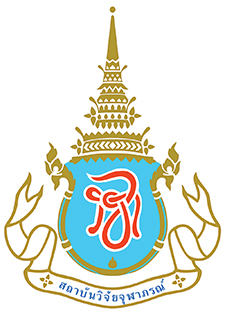Over the past decade, there has been an increasing global awareness of the significant role the environment plays in human health outcomes. This is reflected in international discussions on chemical-related topics, such as lead in paints, hazardous substances within the life cycle of electrical and electronic products, nanotechnology and manufactured nanomaterials, endocrine-disrupting chemicals, environmentally persistent pharmaceutical pollutants, and highly hazardous pesticides, as well as the importance of chemical emissions on issues such as climate change, with potential resultant indirect impacts on human health. Susceptible populations, such as children, the elderly and people with pre-existing diseases, offer an additional layer of complexity in terms of exposure and manifestation of resultant health effects. At the same time, while there is a transition from primarily infectious agents as the main driving force for burden of disease to non-communicable diseases, infectious agents still play a significant role. Malaria, Dengue, SARS, MERS, Ebola, and avian influenza are but a handful of the infectious diseases that still contribute to a significant number of deaths and human suffering around the world.
While we are increasingly aware of the potential interactive effects of climate change and the spread of endemic areas for several infectious diseases through the spread of favorable conditions for the spawning of disease vectors, there is still a lot we do not understand about the inter-linkages of the environment, chemicals and infectious agents and their impacts on human health. In order to effectively address health risks and impacts of exposure to chemicals and infectious agents, much research is needed to define the inter-linkages, such that policy decisions and interventions can be taken to control and ultimately reduce the global burden of disease attributed to them, thereby improving the quality of life for all. The sustainable development of mankind will ultimately depend on our ability to do this successfully.
Congress Theme: Environmental Health: Inter-linkages among the Environment, Chemicals and Infectious Agents.
The scientific program will cover the following areas:
1. Chemical and infectious agents
2. Exposure
3. Diseases resulting from environmental exposure
4. Mechanisms and pathways of disease development
5. Modifiers of susceptibility and disease outcomes
6. Tools and technologies
7. New and emerging therapy
While we are increasingly aware of the potential interactive effects of climate change and the spread of endemic areas for several infectious diseases through the spread of favorable conditions for the spawning of disease vectors, there is still a lot we do not understand about the inter-linkages of the environment, chemicals and infectious agents and their impacts on human health. In order to effectively address health risks and impacts of exposure to chemicals and infectious agents, much research is needed to define the inter-linkages, such that policy decisions and interventions can be taken to control and ultimately reduce the global burden of disease attributed to them, thereby improving the quality of life for all. The sustainable development of mankind will ultimately depend on our ability to do this successfully.
Congress Theme: Environmental Health: Inter-linkages among the Environment, Chemicals and Infectious Agents.
The scientific program will cover the following areas:
1. Chemical and infectious agents
2. Exposure
3. Diseases resulting from environmental exposure
4. Mechanisms and pathways of disease development
5. Modifiers of susceptibility and disease outcomes
6. Tools and technologies
7. New and emerging therapy









